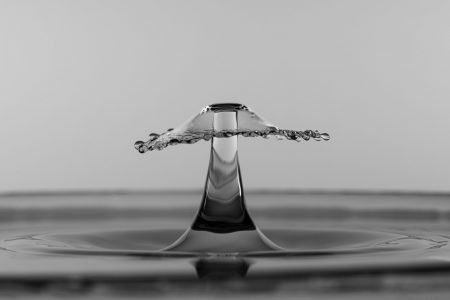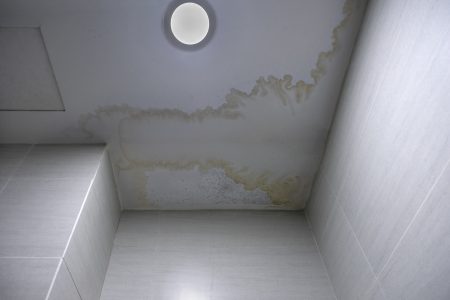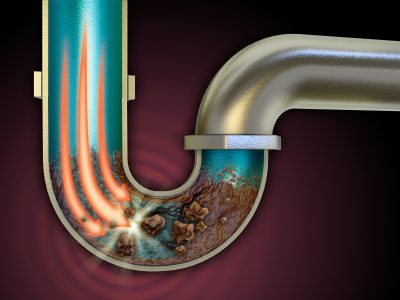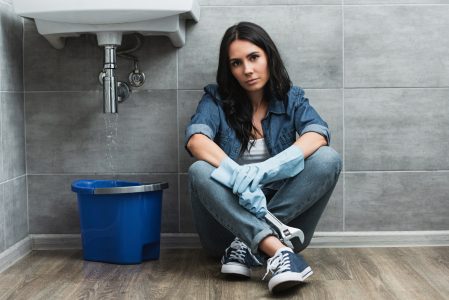Small water damage too often underestimated
February 10th, 2021
We all know that extensive water damage can cost tens of thousands of dollars in repairs and remediation. But what about small amounts of water damage? How costly can it be to deal with?
In this blog post, we’ll look at the things that are commonly damaged by minor leaks, spills and any other unplanned exposure to water in your home. More importantly, we’ll look at how this seemingly small water damage can turn into a full blown and costly catastrophe if left unattended.
Mould and mildew
Mould and mildew are likely the first thing that springs to mind when we think about minor water damage. Besides the well known health effects of mould in the home, it also smells bad, looks worse, and is very difficult to get rid of if left to grow over time.
Mildew is especially pervasive and just one mildewy item such as a book or piece of fabric can cause its strong odor to spread throughout the house and contaminate your indoor air quality and comfort.
If you think that you’ve got a leak causing water to slowly damage any surfaces in your home, don’t delay in getting it fixed right away. Otherwise you’ll be dealing with the pain and expense of a larger plumbing issue as well as mould remediation and replacement of contaminated items.
Pipe corrosion
If left to continue dripping, a leaky pipe will start to cause corrosion and could lead to a full breakdown of the surrounding plumbing. Depending on what type of pipe it is, and where the pipe fails, you could end up with uncontrolled water flowing into your home.
Imagine the damage that could occur in just one hour of municipal water streaming into your bathroom, kitchen or laundry room. And then imagine the damage to the rooms directly below those water sources, because it doesn’t take more than a few minutes of waterflow to breach the flooring. Needless to say, any leaky plumbing should be fixed right away to avoid more extensive and expensive repairs.
If you notice minor water damage under any fixture, for example stains in an undersink cabinet, don’t delay in finding the source of the leak and dealing with it while it is still a small problem.
Easily damaged surfaces
Minor water damage that happens from small leaks or spills can sometimes leave its mark on the surfaces involved. Materials that are especially vulnerable to unsightly water spots, staining or other evidence of water damage include:
- Drywall
- Wood floors
- Carpets and underlay
- Ceilings of all kinds (painted, tiled, stippled, etc.)
Even concrete can be eaten away by constant dripping of water.
If you notice new or worsening water damage on any of these areas in your home that aren’t associated with a specific spill or leak that you’ve already dealt with, you might have an undetected leak. Don’t delay in finding the source of the moisture causing the water spots, stains, warps, or other signs of water damage.
Lower home value
Perhaps one of the biggest hits to a homeowners pocket after small water damage is the decreased value of their home. Home inspectors can somehow see and smell all, even if you’ve done your best to cover all evidence of any small water damage.
Painting over a warped area of drywall, for example, can be easily identified as an area that has experienced some water infiltration. Homebuyers will be more hesitant to buy a home with potential water leaks in the roof, walls, foundation or plumbing.
In order to keep the value of your home intact after minor water damage, here are some do’s and don’ts.
Do:
- Find and fix the source of the unwanted moisture
- Thoroughly dry the surfaces, items and rooms affected
- Repair or replace any damaged surfaces such as drywall, ceiling tiles, and flooring
- Monitor the area to ensure you have fully addressed the leak
Don’t
- Try to mask the smell of mould and mildew with air fresheners or candles
- Simply paint over water damaged areas
- Assume a bit of water damage was a one-time occurrence. Find the problem!
Looking for issues that can lead to water damage
In order to avoid any excess moisture or unwanted waterfalls in your home, we advise the following preventative measures:
- Check your water bill and compare your usage to the similar season last year. If you notice a large spike in water usage, it could be a sign that you’ve got an undetected leak in your plumbing
- Inspect your toilets for leaks. Pay attention to moisture build up on the water intake hose which relies on a washer to avoid your main water supply from emptying onto your washroom floor.
- Replace hoses on appliances such as washing machines, dishwashers and ice-makers when there are signs of wear and tear
- Have your water heater and plumbing systems inspected by a plumber periodically
The team at Plomberie Richard et Fils are here to answer any questions you have about suspected leaks or water damage in your home due to plumbing. We handle projects both large and small in the Montreal area. And when it comes to water damage, we’re always relieved for the homeowner when it’s caught early and the problem is small!




